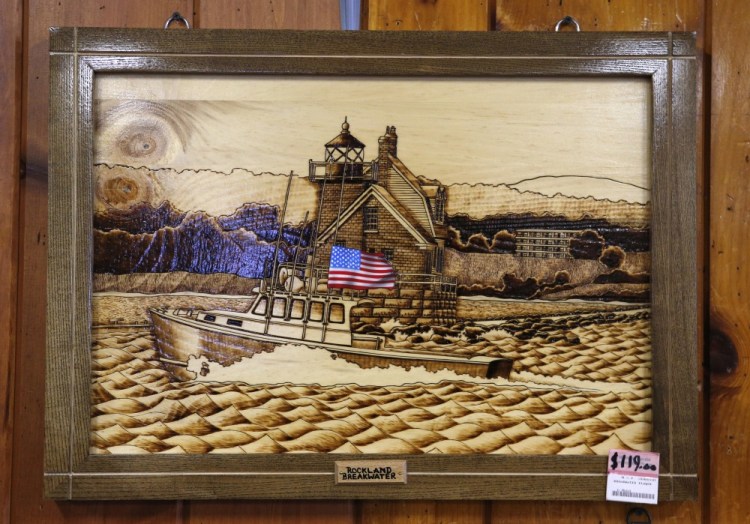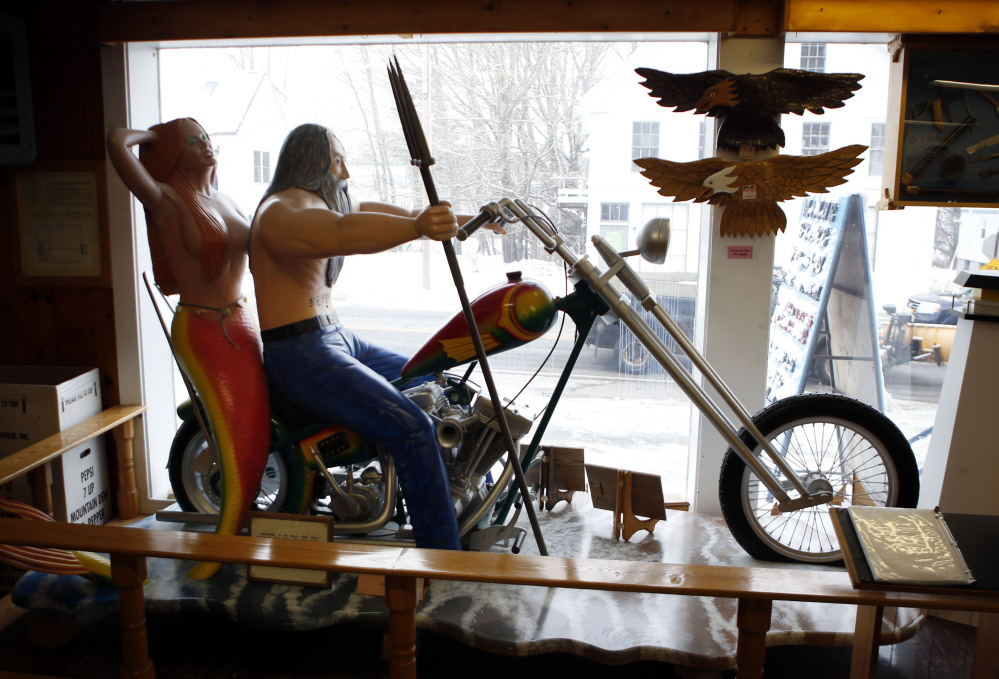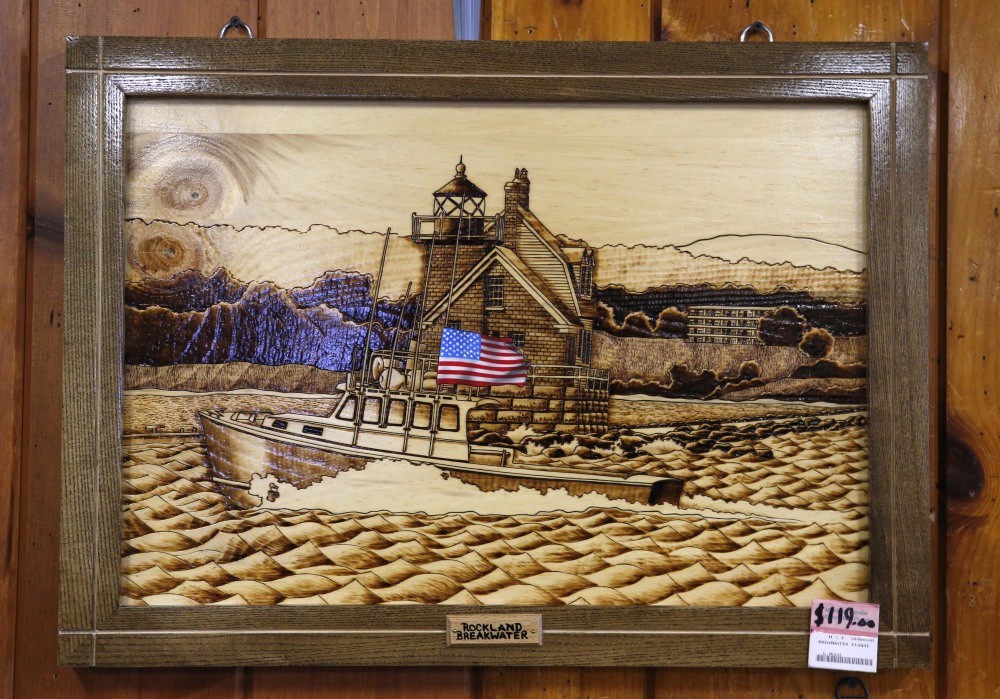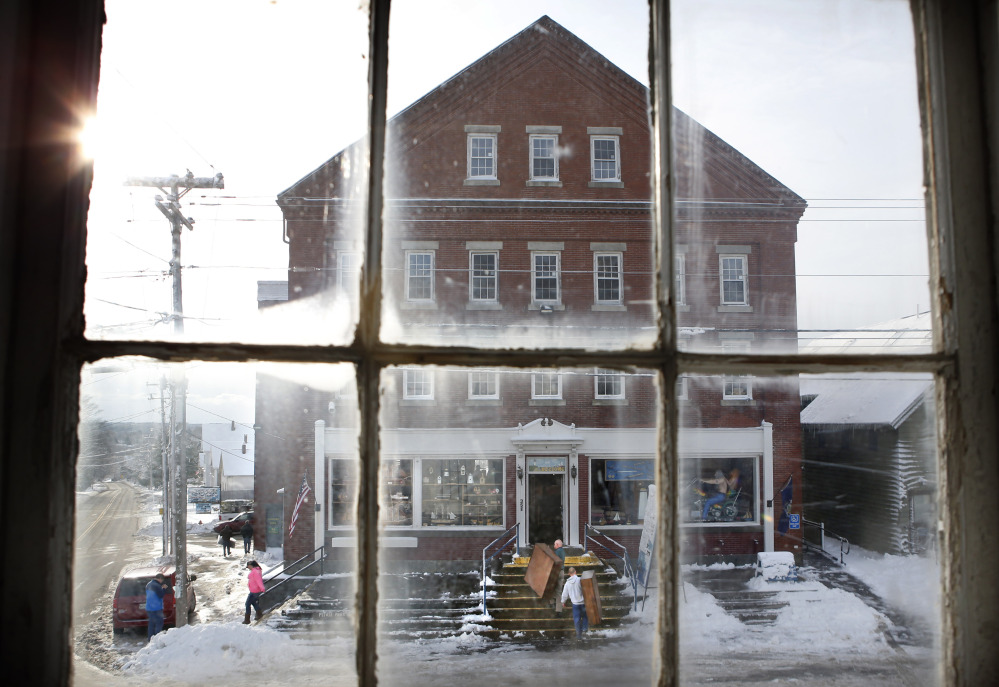THOMASTON — Ken and Judy Carreras got up before sunrise and drove an hour to find their Black Friday treasure – an acorn-shaped bird feeder crafted by an inmate at the Maine State Prison.
“For me, I would much rather spend the money on something that is locally crafted,” Judy Carreras of Stockton Springs said, as the couple and other patrons huddled in their cars in subfreezing temperatures, waiting for the prison’s craft showroom to open.
Friday’s sale at the Thomaston showroom, located 4 miles from the Maine State Prison in Warren, resembled a traditional Black Friday sale in many ways. The store opened an hour early, at 8 a.m., and reduced prices by 40 percent. A similar sale took place at the Maine Prison Industries outlet store in Windham, which cut prices 30 percent.
The Thomaston showroom attracted dozens of cars full of patrons in its first hour as buyers ogled ornamental wooden ball-and-chain sets and priced out porch furniture. Bookshelves, children’s toys, paintings, cutting boards, rocking horses and even models of the USS Constitution – all made as part of an inmate work program – were also on sale to the public.
Items range from $1.95 pencil holders to a $100,000 sculpture of the Roman god Neptune and a mermaid riding a motorcycle. The USS Constitution models, which retail for $2,150, were sold out by midday Friday.
Maine Prison Industries manager Ken Lindsey said sales from the work program total more than $1 million per year. Prisoners are paid $1 to $3 per hour, which must first go toward court restitution and child support payments, but more importantly, the program teaches inmates job skills and people skills that they can use upon release, Lindsey said.
“We have, possibly, a murderer working next to child molester or a pedophile,” Lindsey said. “You have to get along, learn people skills. When you get out, on the streets, you might have someone you don’t like, but you have to work for them.”
The showroom doesn’t advertise which inmates made specific handicrafts, but most of the prisoners who have been at the prison for “any amount of time have probably had an opportunity” to work in the program, he said.
Maine prisoners have made handicrafts for sale since the early 1800s, starting with sleighs and hearses, Lindsey said. Today, some 130 inmates a year participate in the program at the Maine State Prison, a medium- and maximum-security facility that houses 900 offenders. The Thomaston showroom has sold millions of items in the 60 years it’s been operating.
Even most of the wood used in the items is the product of prison labor; the state’s Charleston Correctional Facility maintains a wood harvesting program that supplies raw materials.
The inmates who participate in the program must be working toward high-school equivalency diplomas and enroll in anger management or substance abuse counseling, Lindsey said. Then, they can apply for the job – for which, just like a job on the outside, they must first be hired, he said.
“When they get out, are they all going to become wood workers? Probably not. But they’ll build skills,” Lindsey said. “As long as you’re willing to learn.”
Send questions/comments to the editors.






Comments are no longer available on this story